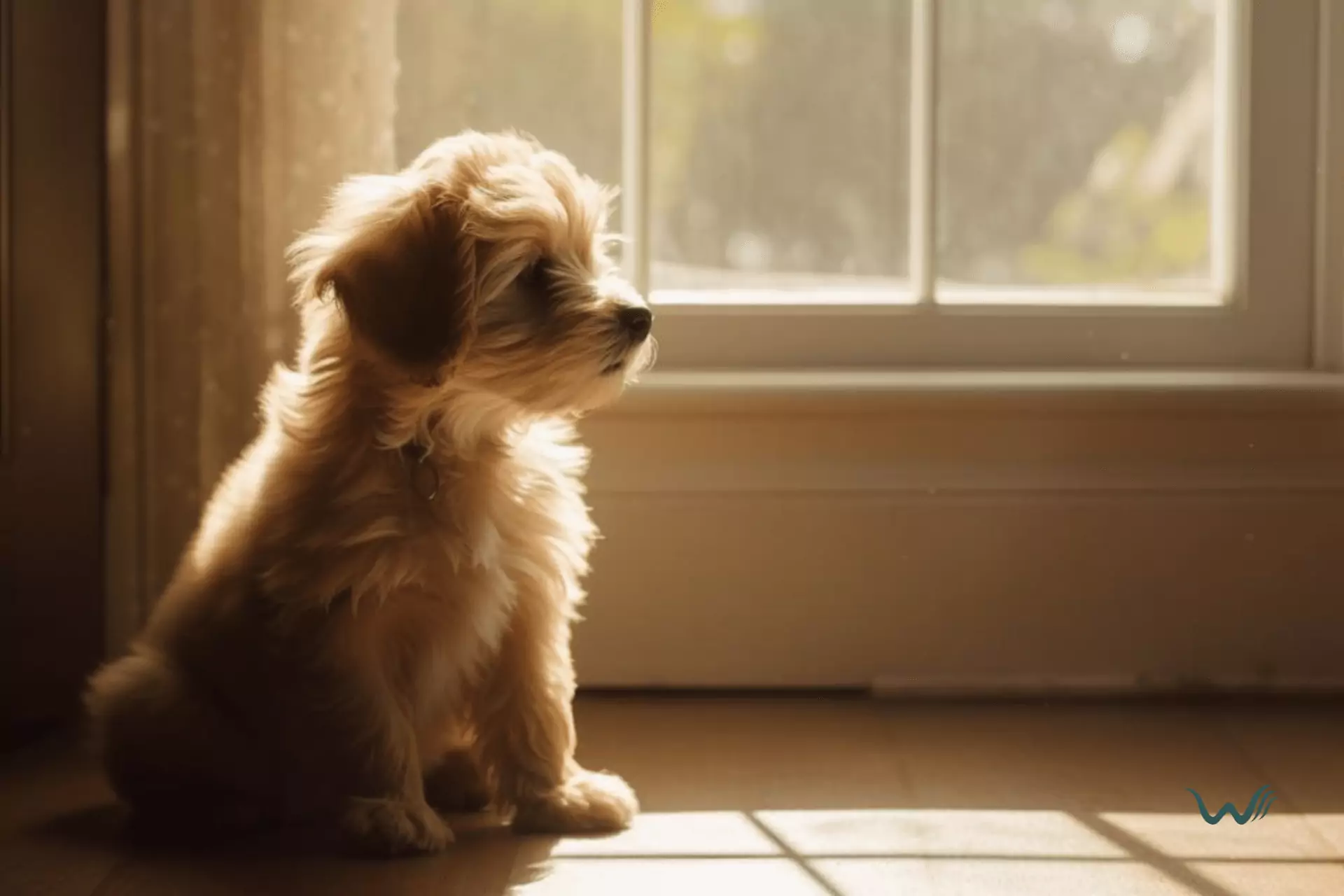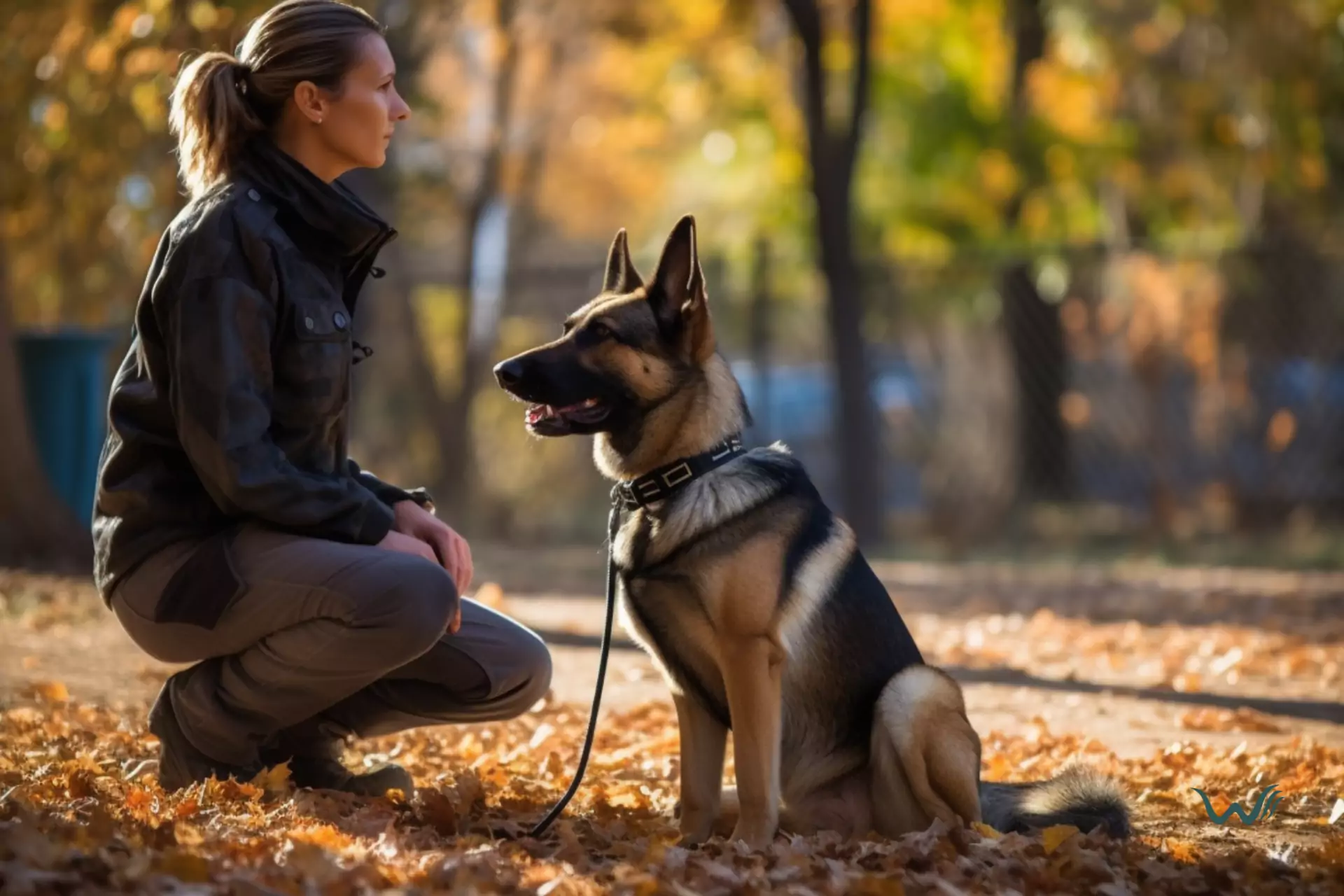

Important Do’s And Don’ts For Housebreaking Puppies
by Tayyaba Amir
Last updated: April 23, 2024
Verified and Approved by:
Angela Morris,
MSW, LCSW
Fact Checked

Are you ready to embark on the journey of housebreaking your adorable new puppy? Congratulations! This is an exciting time filled with love and joy. However, it’s important to remember that housebreaking can be a challenging task. But fear not! With the right approach and a little bit of patience, you can successfully teach your furry friend to do their business in the right place.
In this article, we will explore the important do’s and don’ts of housebreaking puppies, ensuring that you have the knowledge and tools to set your pup up for success. Now, picture this: a perfectly trained puppy, eagerly waiting by the door to be let outside, knowing exactly where to go. No more accidents on your precious carpets or unexpected surprises waiting for you when you come home. Sounds dreamy, right? Well, with the right strategies and a positive mindset, this dream can become a reality.
In this article, we will guide you through the important do’s and don’ts of housebreaking puppies, helping you establish a routine, reinforce good behavior, provide proper supervision, and use positive reinforcement techniques. By following these guidelines, you’ll be well on your way to a harmonious and clean household, ensuring that both you and your furry friend are happy and content.
Key Takeaways
- Use positive reinforcement to reward good behavior during housebreaking.
- Redirect the puppy to the designated potty area whenever necessary.
- Practice patience and consistency in the training process.
- Ensure regular potty breaks for the puppy to establish a routine.
Establishing a Routine
Establishing a routine for housebreaking puppies is as easy as catching a unicorn – it requires patience, consistency, and a dash of magical luck. But fear not, dear reader, for I’m here to guide you through this enchanting process. The key to success lies in creating a schedule and sticking to it like a loyal companion. Set specific times for feeding, playtime, and potty breaks, and make sure to follow them religiously. Puppies thrive on routine, and by providing them with a predictable schedule, you’re not only teaching them good habits but also ensuring their well-being.
When it comes to housebreaking, consistency is your knight in shining armor. Take your furry friend outside to their designated potty area at regular intervals throughout the day, especially after meals and naps. Use a keyword or phrase, such as “go potty,” to associate with the act of elimination. Praise and reward them lavishly when they do their business in the right place, and gently redirect them if accidents occur indoors. Remember, accidents are bound to happen, but it’s important not to scold or punish your puppy. Instead, focus on positive reinforcement and patiently guide them towards the right path.
By establishing a routine, you not only help your puppy learn where and when to do their business, but you also create a sense of security and stability for them. It may take some time and effort, but with perseverance and a sprinkle of luck, you’ll soon find yourself basking in the glory of a housebroken puppy. So, embrace the challenge with open arms, dear reader, and let the journey of housebreaking begin!
Consistent Reinforcement of Good Behavior
Maintaining a consistent reinforcement of good behavior is key to successfully housebreaking a puppy. By consistently rewarding your puppy for exhibiting good behavior, such as going to the bathroom outside, you’re reinforcing the desired actions and helping them understand what’s expected of them.
When your puppy successfully goes to the bathroom in the designated area, be sure to give them praise and a treat as a reward. This positive reinforcement will make them more likely to repeat the behavior in the future. On the other hand, it’s important to avoid punishing your puppy for accidents or mistakes. While it can be frustrating when your puppy has an accident indoors, it’s important to remember that they’re still learning. Punishing them for accidents can create fear and anxiety, which can hinder their progress in housebreaking.
Instead, focus on redirecting their behavior and providing them with opportunities to succeed. For example, if you catch your puppy in the act of going to the bathroom indoors, calmly pick them up and take them outside to their designated bathroom area. By consistently reinforcing good behavior and avoiding punishment, you’ll create a positive and supportive environment for your puppy to learn and succeed in housebreaking.
Providing Proper Supervision and Guidance
Watchful and wise, when you’re with your pup, ensure attentive supervision to steer them towards success in their potty training journey. Your puppy is still learning and may not understand where they should go to relieve themselves. By providing proper supervision and guidance, you can prevent accidents and teach them the appropriate behavior. Here are some important do’s and don’ts to keep in mind:
| Do’s | Don’ts | Tips and Tricks |
|---|---|---|
| Take your puppy outside frequently, especially after meals, naps, and playtime. | Don’t punish your puppy for accidents. They are still learning and need your patience and understanding. | Use a consistent command or phrase, such as “go potty,” to help your puppy associate it with the act of relieving themselves. |
| Reward your puppy with praise, treats, or playtime when they go potty outside. | Don’t leave your puppy unsupervised for long periods of time. They may have accidents if they can’t hold their bladder or bowel movements. | Create a designated potty area in your yard and take your puppy there consistently. The scent will help them recognize it as the appropriate spot. |
| Keep an eye on your puppy’s body language, such as sniffing or circling, which may indicate they need to go potty. | Don’t use harsh or punitive methods to housebreak your puppy. Positive reinforcement is more effective and builds a stronger bond with your furry friend. | Establish a routine for feeding and potty breaks to help your puppy develop a regular schedule. Consistency is key in their training. |
Using Positive Reinforcement Techniques
Using positive reinforcement techniques, it’s paramount to reward your furry friend for their successful bathroom breaks. By providing positive reinforcement, you are helping to reinforce the behavior you want to see from your puppy.
Here are three important ways to use positive reinforcement effectively:
- Treats: When your puppy successfully goes to the bathroom outside, immediately reward them with a small treat. This will create a positive association between going potty outside and receiving a tasty reward.
- Verbal praise: In addition to treats, make sure to shower your puppy with verbal praise when they do their business outside. Use an enthusiastic tone of voice and say things like “Good job!” or “You’re such a clever pup!” This positive reinforcement will further reinforce the desired behavior.
- Playtime: Another way to reward your puppy for successful bathroom breaks is to engage in some playtime immediately after they have done their business outside. This can be a fun game of fetch or a quick session of tug-of-war. Not only will this provide positive reinforcement, but it will also help to burn off some energy and make the whole experience more enjoyable for your furry friend.
Avoiding Punishment and Negative Reinforcement
Minimizing punishment and negative reinforcement is important when housebreaking a new pup. It’s important to remember that puppies are learning and exploring their environment, and accidents are bound to happen. Instead of scolding or punishing your pup for making a mistake, focus on redirecting their behavior and reinforcing positive habits. Punishment and negative reinforcement can create fear and anxiety in your puppy, hindering their progress in the housebreaking process.
To avoid punishment and negative reinforcement, try using positive reinforcement techniques instead. Positive reinforcement involves rewarding your pup for good behavior, such as going potty in the designated area. This can be done through treats, praise, or playtime. By providing positive reinforcement, you are teaching your pup that going potty in the right place leads to positive outcomes and encourages them to repeat the behavior.
Here is a table outlining the do’s and don’ts of avoiding punishment and negative reinforcement when housebreaking a puppy:
| Do’s | Don’ts |
|---|---|
| Use positive reinforcement to reward good behavior | Scold or punish your puppy for accidents |
| Redirect your puppy to the appropriate potty area | Rub your puppy’s nose in their mess |
| Be patient and consistent in your training | Physically force your puppy into the correct position |
| Provide regular opportunities for potty breaks | Shout or yell at your puppy for making a mistake |
| Create a positive and supportive environment for your pup | Use harsh or intimidating training methods |
By following these do’s and don’ts, you can create a positive and effective housebreaking experience for your new pup. Remember, patience and consistency are key, and with time and positive reinforcement, your puppy will learn the appropriate potty habits and become a well-behaved member of your household.
Frequently Asked Questions
Can I use treats as a form of positive reinforcement during housebreaking?
Yes, you can definitely use treats as a form of positive reinforcement during housebreaking. It’s a great way to reward your puppy for good behavior and motivate them to continue doing the right thing.
How long does it typically take to housebreak a puppy?
Housebreaking a puppy typically takes around 4-6 months, but every dog is different. Patience is key! Remember, accidents will happen, so be prepared. Did you know that 85% of puppies are successfully housebroken within a year?
Is it necessary to confine the puppy to a specific area during the housebreaking process?
Yes, it is necessary to confine the puppy to a specific area during the housebreaking process. This helps them understand their designated space and prevents accidents in other parts of the house.
Are there any specific breeds that are easier or harder to housebreak?
Housebreaking can be easier or harder depending on the breed. Some breeds, like the Labrador Retriever, are quick learners and easier to train. Others, like the Basset Hound, can be more stubborn and challenging.
What should I do if my puppy has an accident indoors?
If your puppy has an accident indoors, don’t panic! Gently interrupt them and take them outside to finish. Clean up the mess without scolding them. Consistency, positive reinforcement, and patience will help them learn faster.
Certify Your Emotional Support Animal Today

Why You Can Rely on Us?
At Wellness Wag, we believe your pet deserves care rooted in both science and compassion. Each article is carefully researched, written in clear language for pet owners, and then reviewed by qualified professionals to ensure the information is evidence-based, current, and practical for real-life care. Our goal is to help you feel confident in making informed decisions about your pet’s health and well-being.
Reviewed by
Angela Morris, MSW, LCSW
Angela is a licensed clinical social worker with 20 years of experience in patient advocacy and community mental health. She has assisted numerous clients with ESA evaluations and brings a deep understanding of disability accommodations, ensuring that all information is accurate, supportive, and practical.

Written by :
Tayyaba Amir
Last Updated :
April 23, 2024










